Acta Materialia Mary Fortune Global Diversity Medal
The deadline for nominations for all Acta Materialia and Acta Biomateriala awards is February 1st each year. For the Acta Materialia Silver medal and the Acta Biomaterialia Silver medal, the nominees must be 45 years or younger on December 31 the previous year.
The Acta Materialia Mary Fortune Global Diversity Medal recognizes one or more of the following in the field of Materials Science and Engineering. It rewards either:
- Promotion of, or representation of, women and other under- represented groups in the materials science and engineering field;
- Contributions to the field of materials science and engineering, including teaching, professional service or research;
- Demonstrated commitment to mentoring students and young professionals;
- Promotion of materials science and related professional activities in the broader community.
With this distinction Acta Materialia, Inc. not only intends to honor outstanding contributions to the field but also to improve the awareness of the fundamental importance and diversity of materials research, both within the community and the public at large.
The Acta Materialia Mary Fortune Global Diversity Medal consists of a silver medal, an inscribed certificate, and a cash prize of US$5,000.
Candidates for this award may be proposed by any scientist/engineer/practitioner or any materials related society, previous Acta award recipients, Sponsoring or Cooperating Societies of Acta Materialia, Inc., and Editors of the Acta Materialia journals.
The nomination package should contain:
- Curriculum Vitae
- A statement by the nominator specifying the candidate’s suitability for the award. The emphasis should be on the nominee’s impact on their research field, rather than the metrics on their publications.
- Letters of support from up to three distinguished scientists in the field
- Citation of not more than 30 words
Nominations remain in effect for three years unless withdrawn or re-submitted, with additional justification, for an additional two-year period. Current members of the Acta Materialia Board of Governors and of the Award Selection Committees are not eligible for nomination.
The Award Selection Committee is formed of five judges, themselves distinguished materials scientists.
The Acta Materialia Mary Fortune Global Diversity Medal is awarded each year, unless the judges feel no candidate is qualified. The presentation is made at a venue approved by the Acta Materialia Executive Committee. The Award will not be bestowed in absentia except under extraordinary circumstances.
Nominations should be submitted to the Executive Secretary (Prof. Carolyn Hansson, [email protected]), preferably as a single file document in PDF or Word format.
Acta Materialia, Inc.
Acta Materialia, Inc. (http://www.actamaterialia.org) is a non-profit organization representing 36 professional societies worldwide. It is dedicated to disseminating the knowledge of science and engineering of materials, primarily by publishing high quality journals covering all aspects of the multidisciplinary field of materials science and engineering, including biomaterials, nanomaterials, materials chemistry and physics. The corporation publishes four journals in collaboration with Elsevier: Acta Materialia, Scripta Materialia, Acta Biomaterialia, and Materialia.
Acta Materialia Mary Fortune Global Diversity Medal Award Recipients
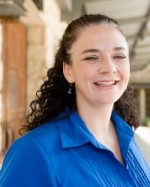
Elizabeth Cosgriff-Hernandez
Professor Elizabeth Cosgriff-Hernández in The University of Texas at Austin’s Department of Biomedical Engineering will receive the 2025 Acta Materialia Mary Fortune Global Diversity Medal.
The award recognizes one or more of the following in the field of Materials Science and Engineering:
Promotion or representation of women and other under-represented groups in the materials science and engineering field
Contributions to the field of materials science and engineering, including teaching, professional service or research
Demonstrated commitment to mentoring students and young professionals
Promotion of materials science and related professional activities in the broader community
Professor Cosgriff-Hernández has built an internationally recognized research program focused on the development of biomaterial platforms for surgical products that address urgent clinical needs across cardiovascular, orthopaedic, wound healing, and gynecological applications. Current clinical applications of her research include injectable bone grafts, chronic wound dressings, tissue engineered ligaments, and bioactive vascular grafts.
She will receive the award at the Society for Biomaterials Annual Meeting in Chicago, taking place April 9 thru April 12, 2025.
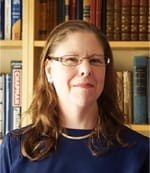
Lynnette D. Madsen
The recipient of the 2024 Acta Materialia Mary Fortune Global Diversity Medal is Dr. Lynnette D. Madsen, visiting professor and scholar at Cornell University and program director at the U.S. National Science Foundation (NSF).
Lynnette Madsen holds bachelor’s degrees in Electrical Engineering (1986) and Psychology (2004) from the University of Waterloo, a master’s degree in Electronics (1988) from Carleton University, and a Ph.D. in Materials Science (1994) from McMaster University.
Lynnette Madsen’s career has spanned multiple work sectors and countries. In Canada, she focused primarily on the industry sector, particularly at Nortel Networks. During her time in Sweden, she made valuable contributions while working at Linköping University. In the United States, she made notable input while working in the federal government, specifically at the NSF, as well as in academia, affiliating with institutions such as Cornell University, University of Pennsylvania, Carnegie-Mellon University, and the University of Illinois at Urbana-Champaign. As an accomplished researcher, Lynnette Madsen’s extensive body of work includes journal articles and several books and patents. Her dedication and expertise extend beyond research as she has demonstrated her capabilities as a skilled strategist and policy maker.
Drawing from the diverse cultural perspectives gained through her experiences in various countries and sectors, she brings a unique lens to issues of diversity, equity, and inclusion (DEI). This perspective allows her to effectively focus on critical policy and research matters, engaging and influencing the research community in meaningful ways. Dr. Madsen’s main DEI approaches are to: (i) present statistics, (ii) inspire underrepresented groups, and (iii) provide opportunities. This triad aims to drive better representation by appealing to different motivations: data-driven understanding, personal inspiration, and tangible pathways for advancement.
She is renowned for her significant contributions in the DEI field, particularly through her book titled “Successful Women Ceramic and Glass Scientists and Engineers: 100 Inspirational Profiles”, published by Wiley and the American Ceramics Society (ACerS). This book highlights the outstanding achievements of contemporary women from 29 different countries, serving as a beacon of inspiration for others to pursue their aspirations. Enthused by this book, the women featured in this volume were nominated for prestigious accolades, such as National Academy of Engineering membership, Honorary Doctorates, and significant keynote presentations. Subsequently, an article, co-authored with R.R. Colwell, “Recognition of Achievement – Priorities and Process” was published in Materials Today.
Dr. Madsen embarked on publishing in the realm of DEI as early as 1998. Recently, she took a pivotal role in editing and contributing to a comprehensive seven-article series on this crucial topic in a Materials Research Society (MRS) Bulletin Series. Throughout her distinguished career, Dr. Madsen has consistently demonstrated her unwavering commitment to fostering DEI principles. Notably, she has been instrumental in developing and implementing strategic DEI plans for various organizations, such as the NSF and Cornell University. She has passionately integrated DEI principles into numerous initiatives, including the Research Resource Hub at the University of Pennsylvania, postdoctoral opportunities at Cornell University, and reviewer recruitment at NSF. Moreover, Dr. Madsen’s commitment to promoting DEI is reflected in her extensive involvement in committees, symposia organization, and board memberships underscoring her commitment to actionable change. For example, after helping to establish graduate research supplements for minorities and Veterans at NSF, she recommended more than 50 of the subsequent awards.
Her accomplishments have also been recognized with many awards and honors, including Fellow of the Canadian Academy of Engineering, ASM International, MRS, American Association for the Advancement of Science, American Vacuum Society, and ACerS as well as the Acta Materialia Hollomon Award for Materials & Society.
Dr. Madsen will receive the Mary Fortune Global Diversity Medal during the TMS 2024 Annual Meeting to take place in Orlando, FL, in March 2024.
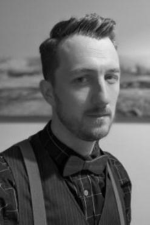
Ben Britton
The recipient of the 2023 Act Materialia Mary Fortune Global Diversity Medal is Dr. Benjamin Britton, Associate Professor at the University of British Columbia, Vancouver Campus (located on the Musqueam Traditional Territory). Prof. Britton currently serves as Graduate Advisor and Associate Head of Department of Materials Engineering at UBC. He also chairs the Manufacturing Engineering EDI committee to promote and sustain culture change in favour of the University’s students, faculty, and staff.
Dr. Britton received his M.Eng. degree in Materials Science in 2007 and his D.Phil. in Materials in 2011 from the University of Oxford. During his doctorate, he worked with Dr. Angus Wilkinson to develop high resolution electron backscatter diffraction with a focus on improving our knowledge of deformation processes in titanium alloys. After defending his dissertation, he moved onto a post doctoral fellow position at Oxford, focussing on understanding materials for fission and fusion working with Prof. Steve Roberts and Dr. Angus Wilkinson. In 2012, he moved to Imperial College London and started his independent research group as a Nuclear Metallurgy Research Fellow. In 2015, he won a Royal Academy of Engineering Research Fellowship and became a permanent member of academic staff. In 2021, he left Imperial to join UBC as a tenured associate professor.
Dr Britton maintains a research focus on developing advanced characterization approaches, typically scanning electron microscopy based, to understand microstructure and micromechanical performance of materials used in high-value high-risk applications. Typically, he has focused on engineering alloys, but he has also worked on semiconductor and superconductor materials, as well as materials found in the earth’s mantle. His work has been published widely.
In addition to Dr. Britton’s technical contributions, he has been advocating to better the culture of science fields for everyone, and with a focus on promoting issues that affect LGBTQ+ individuals in STEM. Most famously, this has been through a series of talks that blend his personal journey as a gay-white-cis-het-neurodivergent individual, his academic career, and the literature which highlights the challenges and joys of being LGBTQ+ in STEM. He was awarded the TMS Frank Crossley Diversity Award in 2021 and has since served as a member of the TMS Diversity and Pride Committees and the TMS ad hoc committee on volunteering training.
Dr. Britton’s professional service includes: development of open source characterization tools, including AstroEBSD, to grow community in the development of new methods of microscopy, and co-organising the RMS EBSD conference (2016 and 2022). He is also Councillor-at-large of the Microscopy Society of Canada and Co-chair of the UK interdepartmental working group on materials outreach (2017-2021), now Discover Materials, focused on enhancing outreach and recruitment of youth into materials science and engineering.
Dr. Britton will receive the Mary Fortune Global Diversity Medal during the 2023 TMS Annual Meeting in San Diego, CA, March 19 -23, 2023.
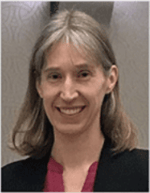
Amber Genau
The recipient of the 2022 Acta Materialia Mary Fortune Global Diversity Medal is Amber Genau, Associate Professor of Materials Science and Engineering at the University of Alabama at Birmingham. Her citation for the award reads “For sustained, varied and enthusiastic efforts to diversify the field of materials science by providing engaging experiences and serving as a positive role model inside and outside the classroom.”
Dr. Amber Genau received her BS and MS degrees in materials engineering from lowa State University in 2004 and her PhD in materials science from Northwestern University in 2008. She spent two years at the German Aerospace Center (DLR) in Cologne, working in the Institute for Materials Physics in Space, before joining the faculty at UAB in 2010. Her research focuses on metal alloy solidification and characterization of complex microstructures. Dr. Genau’s active and well-funded research lab, with support from NSF, NASA, DOE and others, including an NSF CAREER award in 2016, has allowed her to support a diverse array of research assistants from high school through postdoctoral level. Dr. Genau maintains active collaborations with several German universities and returned to WTH Aachen University for a sabbatical in 2019.
Dr. Genau was inspired to pursue an academic career by the energetic young female professor who taught her first materials engineering course. Since then, she has worked to be a similar role model for other young women and girls and to make engineering an accessible and attractive field for a variety of students. She particularly likes teaching introductory materials courses, where the connections between the course content and students’ real-world experiences are so clear. She works continually to revise and improve her courses, using diverse examples and research-informed teaching strategies. Dr. Genau is an active member of the American Society for Engineering Education (ASEE), attending the annual national meeting and associated workshops to learn more about best practices for teaching engineering in general and materials engineering specifically.
Strongly influenced by her own study abroad experience as an undergraduate student, Dr. Genau organizes a biannual MSE elective course in Germany. Titled “The Evolution of Engineering Materials,” the three-week tour through Germany includes visits to universities, research labs, industrial production facilities, and various museums and cultural sites to survey engineering materials of the past, present, and future and their influence on society. Dr. Genau particularly tries to facilitate connections between the American and German engineering students and between her students and American engineers working abroad, in hopes that the students can see themselves in a similar position someday
Based on her experience in Germany and her belief that understanding history makes students better engineers and more thoughtful citizens, she worked with the UAB history department to create a co-taught, two course sequence on World History and Technology that meets undergraduate core curriculum requirements. These courses are now available for engineering majors and non-engineers alike.
For her efforts in and out of the classroom, Dr. Genau was recognized with the UAB Presidential Award for Excellence in Teaching in 2017 and the ASM Bradley Stoughton Award for Young Teachers in 2014, which noted her outstanding classroom instruction, excellence in student recruitment and strong support of student chapters of technical societies. Since joining the MSE department at UAB, Dr. Genau has been the faculty advisor for the department’s chapter of Material Advantage and co-advisor for the American Foundry Society chapter. In 2015, Dr. Genau became the founding faculty advisor for UKirk, a new student organization on campus that provides welcoming Christian fellowship to straight and LGBT students.
Dr. Genau is also active in a variety of outreach activities, most notably organizing a Materials Camp for local high school students since 2011. Starting in 2016, she began a partnership with UAB’s Community Outreach Development (CORD) office to recruit more students from Birmingham’s underserved urban schools, which serve primarily African American students.
Dr. Genau’s professional service is similarly oriented to education and diversity. She is currently the chair of the TMS education committee and a member of the TMS diversity committee. As a member of the TMS young leaders committee, she organized the Student Career Forum in 2015, assembling a diverse panel of professionals to speak to undergraduate students. Since 2016, Dr. Genau has organized the NSF Grantees Poster Session at the ASEE Annual Meeting, a high visibility venue for 150+ investigators with funded projects in engineering education to disseminate their work.
The University of Alabama in Birmingham has been recognized by the Princeton Review for the diversity of its student body, around 35% of which is African American. During the 2016-2017 academic year, Dr. Genau participated in UAB’s Blaze Leadership Academy, leading a team of participants in a project related to improving the campus experience for minority and first generation college students. The Blaze project culminated in a two-day summit for students, faculty and academic advisors about best practices for supporting diverse students, coordinated in conjunction with UAB’s Center for Teaching and Learning.
Dr. Amber Genau will receive the Acta Materialia Mary Fortune Global Diversity Medal during the 2022 TMS Spring Meeting to be held in Anaheim, California, February 27 - March 3, 2022.
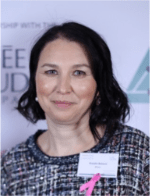
Katalin Balázsi
The recipient of the 2021 Acta Materialia Mary Fortune Global Diversity Medal is Dr. Katalin Balázsi, Head of Thin Film Physics Department of Institute of Technical Physics and Materials Science, Centre for Energy Research of Eötvös Loránd Research Network, Hungary. She is also the President of the Association of Hungarian Women in Science (NATE).
Katalin Balázsi received her B.A. degree in Electromaterials Engineering in 2000, her M.A. (2002) and Ph.D. (2005) degrees in Materials Science, all from the Faculty of Electrical Engineering and Information Technology, Slovak Technical University in Bratislava. She was named the Young Researcher in the Institute of Electrical Engineering at Slovak Academy of Sciences in 2005. She started her research career as research fellow in 2006 at the Institute of Technical Physics and Materials Science, Hungarian Academy of Sciences, and in 2012 was appointed senior scientist at the Centre for Natural Sciences, Hungarian Academy of Sciences.
Dr. Balázsi has focused over 15 years of research activities in the area of nanocomposite thin films and bioceramics. In addition, important activities she participates in and organizes for the promotion and representation of women in the materials science and engineering field include the following:
Dr. Balázsi’s contributions have been recognized in her election as a board member of the Engineering Ceramic Divison, the American Ceramic Society (ACerS), the council member of the European Ceramic Society (ECERS) and board member of administration of the European Platform of Women Scientists. She also served as the secretary of the Hungarian Microscopic Society and Hungarian Society of Materials Science.
- Initiation of a program for which the goal is to take secondary and high school students (with 70% girls’ participation) into real-life environment materials science professions to make these more attractive, thus, contributing to easing the high-skilled workforce shortage in the tech sector in the long run. She prepared a one-year research program for young students (~ ages 16-18) in the field of materials science, with a focus on bioceramics. This real-life research activity took place every Friday for 3 hours in her laboratory. It is a great value and an important factor for students to gain first-hand experience and information on STEM professions as early as possible, even as early as in the senior years of primary school, but not later than high school, before making a career choice.
- Organization of a Girls Day for the past eight years in her laboratory; she was the first from the Hungarian Academy of Sciences to initiate the participation of the Academy in this manner. As a result, from 2012 to 2019, a few thousand young girls (around age 16) gained insight into materials science research.
- Organization of the national conferences in “Women in Science” topic and round table discussions with real-life problems about balancing family and research life.
- Involved the girls in the programs in various research activities from a young age, before university, helping to increase the number of potential women researchers in materials science.
- Organization of the International Workshop on Women in Ceramic Science, 2019 with support of the European Ceramic Society, with eight invited female professors from Europe and 50 young researchers. The aim of this workshop was to demonstrate that the European Ceramic Society boosts excellent women researchers in the field of ceramic science. Part of the workshop was a round table discussion oriented to the topic of “Balance between career and family in the life of young researchers.”
- Representation of women researchers at the international level as well as serving as a board member of the European Platform of Women Scientists (EPWS). EPWS is an international non-profit umbrella organisation bringing together networks of women scientists and organisations committed to gender equality.
- Organization of a summer camp for kids living in a children´s home – promoting research activity with the help of MSc students from technical universities as positive role models.
- Promoting balance between family and research career as a female researcher.
- Supervision of female high school students in national competions for young innovators and Ph.D. students from third world countries as well as Hungary.
Dr Balázsi’s scientific career has also been recognized with many awards and honors, including ACerS, Engineering Ceramics Division, 2019; Jubilee Global Diversity, Nature Research Innovating Science Award (as NATE president) in 2018; Gyulai Zoltán Award of Roland Eötvös Physical Society in 2017; and Bolyai Plaquett of Hungarian Academy of Sciences in 2015.
Dr. Balázsi will receive the Acta Materialia Mary Fortune Global Diversity Medal during the 2021 TMS Spring Meeting to be held in Orlando, Florida in March 2021.